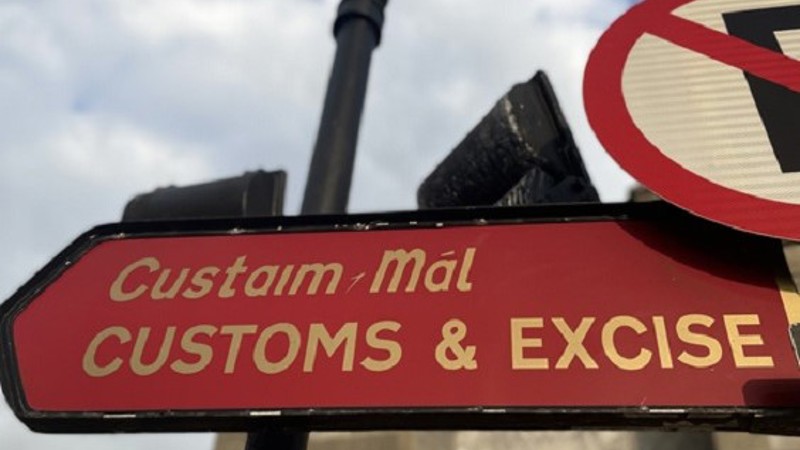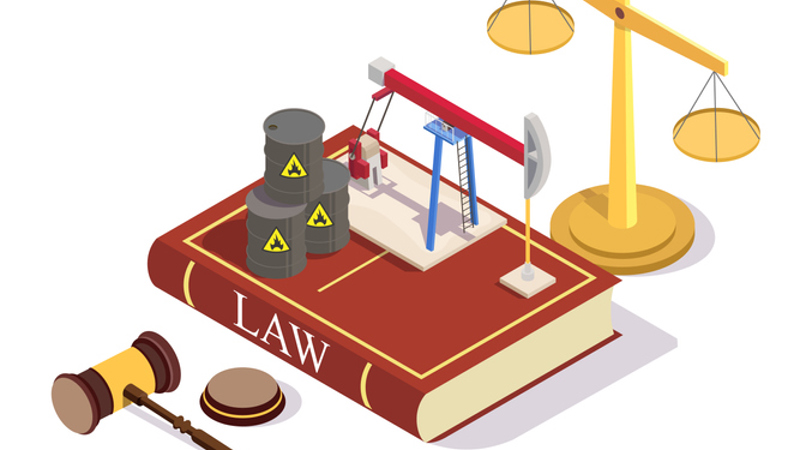Forumshopping in CMR cases by means of negative declaratory judgments
June 2023
Expensive cargo is often transported by road. Goods such as laptops, mobile phones, solar panels, garments, cigarettes and liquors have to be carried from manufacturers all over the world to warehouses, high street retailers and end users. In many cases, these goods enter the European Union in the Netherlands and are then carried by road to their final destinations in other countries.
Transport risks and limitation of liability
There is always a certain risk associated with carriage of goods by road. Goods may become damaged during carriage or they get lost or stolen, most commonly while the driver spends the night en route. Thus, cargo-interested parties face potential loss or damage and carriers face potential liability for that loss or damage.
The CMR Convention applies mandatorily to international road haulage to and from a contracting state to the Convention. Under the CMR, if the carrier is liable for the loss of or damage to the goods, his liability is limited to 8.33 SDR[1] per kilogram of lost or damaged goods (Article 23, Paragraph 3, CMR). The kilogram limitation does not apply when the cargo-interested party proves that the loss or damage was the result of wilful misconduct of the carrier or his servants, or conduct which is considered equivalent to wilful misconduct in accordance with the law of the court seized of the case (Article 29 CMR). In that case, the carrier is fully liable for all loss and damage.
The fact that national law is applied to the question of whether or not the carrier can rely on the limitation of liability means that, if the case is litigated, the outcome of proceedings can be different depending on the jurisdiction. It may therefore be of great importance in which country a case is brought before the courts. In addition the question of limited versus full liability, there can also be other reasons why a party may wish to have his case heard in one jurisdiction rather than another.
Before discussing examples, I will briefly set out the legal context which enables the parties, within certain boundaries, to choose the jurisdiction that best suits their interests and, importantly, prevent their counterparties from suing them in another jurisdiction.
Multiple jurisdictions
In the absence of an arbitration clause, at least two courts will have jurisdiction to adjudicate any dispute under the CMR, namely the court of the place where the carrier took receipt of the goods and the court of the place where the goods were (to be) delivered. In addition to these courts, other courts may have also have jurisdiction: a court chosen by the parties, if any, and the courts of the place of business of any defendant. Thus, in any one case, at least two and sometimes four or more courts have jurisdiction under the Convention (Article 31, Paragraph 1, CMR).
Which court actually deals with the case is determined on a ‘first come, first serve’ basis. When a case has been brought before one of the competent courts, no new action can be started before any other court between the same parties and on the same grounds (Article 31, Paragraph 2 CMR). For the application of this provision, the operative question is: what is the meaning of the phrase “on the same grounds”? This has been determined by the highest court in the European Union (EU).
The EU has its own rules governing jurisdiction, which are interpreted by the Court of Justice of the European Union. The EU rules permit the application of prior convention provisions on jurisdiction, as is the case with the CMR which dates from 1956. But according to the case law of the Court of Justice of the European Union, these ‘prior jurisdiction’ rules only apply if and when they do not conflict with the relevant EU rules and principles. The Court of Justice has determined that a claim for damages or an indemnity action by a claimant has the same cause of action as an action brought by a (would-be) defendant seeking a declaration that he is not liable for the loss or damage. This means that, when proceedings aimed at claiming damages have been started in one member state and subsequently negative declaratory proceedings are started in another member state between the same parties, the court first seized of the claim for damages will have jurisdiction, and vice versa. The court that was seized second has to decline jurisdiction. The judgment rendered by the first court has to be automatically recognized in all other EU member states. The EU does not allow for any other interpretation of Article 31, Paragraph 2, CMR.[2]
This system, with its multiple competent courts under the CMR Convention and with recovery claims and negative declaratory claims being considered equal, creates opportunities for all parties in the transport chain to choose the most favorable jurisdiction from among the available jurisdictions. In other words, the system leads to forumshopping.
Forumshopping in transport cases
Forumshopping is about maximizing recovery (for cargo-interested parties and their goods in transit insurers) and about minimizing liability (for carriers and their liability insurers). There are various circumstances under which it makes sense to investigate the possibilities, both for parties on the ‘offence’ and on the ‘defence’.[3] Below, I will divide those circumstances into three main categories. Any actual case may fall into more than one category.
1. A substantial difference between the amount of damages and the CMR limitation
If a consignment of, for instance, electronics or brand clothing is lost or damaged, the damage can easily amount to hundreds of thousands of euro’s. But the weight of those goods is generally quite low, sometimes as little as a few thousand kilograms for a full truck load. For high-value low-weight goods, the difference between full liability and limited liability can be enormous. That difference will certainly be an incentive for parties on both sides to seek a favorable jurisdiction, either to invoke the limitation of liability or to try to breach it.
A carrier often receives security instructions for the carriage of valuable goods. The shipper may, for instance, prescribe that the vehicle has to be equipped with certain security devices or that the driver must only use secured parking spaces. In many legal systems, if such instructions are violated and the goods are stolen, the violation will be considered a default equivalent to wilful misconduct and the carrier will be held fully liable. In some countries a carrier can even be held fully liable in the absence of a violation specific instructions, if he did not exercise sufficient care in accordance with the national standards. This may be the case, again, when a driver spent the night in an unsecured parking lot, or for instance when he was speeding and caused an accident which damaged the goods.
The Netherlands is an attractive jurisdiction for carriers who wish to rely on the CMR limitation, because breaching the limitation in this country is very difficult indeed. Even the carrier ignored specific safety instructions, he will usually still be able to rely on the limitation of liability. All he has to do to protect his right to invoke the limitation is to issue a writ of summons as soon as possible against all parties which have claim for damages against him. In that writ the carrier should ask the court to make a declaratory ruling that he is not liable for the damages, or at least not beyond the limitation of 8.33 SDR per kilogram. If the carrier does this before he himself is sued in another jurisdiction, the case will be adjudicated by the Dutch court. Based on the European jurisdictional rules described above, any other competent court (at least within the EU) that may be seized of the case later, for instance by a cargo-interested party, has to decline jurisdiction. This ensures that the carrier’s liability will be determined by the, presumably favorable, Dutch court.
Of course, cargo-interested parties can prevent this by being the first one to start proceedings in a different competent court, as the Dutch court would decline jurisdiction if it was seized second. However, usually the carrier starts proceedings first as he knows first about the theft or damage to the goods. Sometimes the difference between the first and second proceedings may be a matter of hours, not days.
For carrier’s liability insurers, the Dutch jurisdiction has the added benefit that a direct action against them is not possible under Dutch law. This means that if the carrier’s liability insurers are included in the Dutch proceedings as co-claimants, they can benefit from the same jurisdictional rules and can no longer be sued for damages in another jurisdiction that would allow a direct action against them.
Thus, the most important thing is to act quickly. After an incident has taken place, the parties involved would do well to consider their positions, take stock of the possibilities and take appropriate action.
2. The interpretation of “customs duties and other charges” (Article 23, Paragraph 4, CMR)
If the carrier is liable and can limit his liability, he not only has to compensate the per kilogram limitation amount but also, if applicable, the other kinds of damage which are recoverable under Article 23, Paragraph 4, CMR. Among those are “customs duties and other charges incurred in respect of the carriage of the goods”.
Some goods, particularly cigarettes and alcoholic beverages, are taxed heavily when they are imported into the EU or the UK. Excise duties are not always paid at the border of the customs territory, but can also be paid at the place of destination. If the goods are stolen before they reach that destination, they can be considered by the customs authorities as having been released into free circulation. Excise duties then become payable, sometimes increased with a steep fine for not making a customs declaration. With the goods no longer present those costs cannot be passed on to the consumer, so the cargo-interested party is left with a considerable financial loss.
In some jurisdictions, such as the UK, the carrier is considered liable for excise duties incurred during transport, as such duties are interpreted by the courts as being “customs duties and other charges incurred in respect of the carriage of the goods” within the meaning of Article 23, Paragraph 4 CMR.
In the Netherlands that is not the case. In the landmark Phillip Morris/Van der Graaf II judgment, the Dutch Supreme Court held that the phrase “customs duties and other charges incurred in respect of the carriage of the goods” must be interpreted to mean the costs directly related to (the normal performance of) the carriage as such. These costs therefore do not include the costs which under the relevant customs law regime are related to the loss of the goods due to the carrier's failure to fulfill its obligations under the contract of carriage.[4] Thus, a carrier who may face liability for excise duties in another country may be well-advised to start negative declaratory proceedings in the Netherlands, provided of course, that the Dutch courts have jurisdiction. Conversely, a party that wishes to recover excise duties should claim those damages in a country where that is possible before the carrier has started negative declaratory proceedings elsewhere.
3. The scope of the CMR Convention
There are at least two ways in which the scope of the CMR as such, as interpreted by the national courts, can be important. The first relates to the position of the freight forwarder. The second concerns the scope of the liability provisions of the CMR.
In the Netherlands, a freight forwarder is legally distinct from a carrier. A party acting as a freight forwarder is subject to a different (exclusively national) liability regime. Under that regime, he can only be liable for damages that are the result of his own mistakes in executing the freight forwarding contract. The acts and omissions of a (sub)carrier are not attributed to the freight forwarder. This is different in many other jurisdictions. There, the freight forwarder can be held liable on the same basis as a carrier. This difference can be a powerful incentive for a freight forwarder to start negative declaratory proceedings in the Netherlands. After all, this can mean the difference between full liability and no liability at all.
Legal systems may also differ as to the determination of which cases fall under the liability regime of the CMR. In the Netherlands, the CMR liability provisions are considered to cover only three types of cases: cases in which the goods were lost or damaged during carriage and cases in which delivery was delayed. All other cases, and hence all other kinds of damage, are not considered as being covered by the liability provisions of the CMR. Examples include costs (such as demurrage, storage and handling charges and administrative costs) which may become payable as a result of incorrect information provided by the carrier to the shipper, fines and other costs incurred as a result of the carrier having picked up the goods before they were released for carriage and damage caused to any property belonging to the shipper or the consignee other than the transported cargo. In the Netherlands, the carrier can be fully liable for those types of damage, as they fall outside the liability regime of the CMR. That may not be the case in other jurisdictions. Interestingly, despite the fact that these kinds of damage are considered in the Netherlands to fall outside the liability regime, they do not fall outside the scope of the Convention as such. The CMR jurisdictional rules have a comprehensive scope of application, so forumshopping under the Convention is still possible for these types of cases.
Conclusion
Even though the CMR Convention is part of uniform private law, there are still many aspects of the carrier’s liability that are not uniform across the contracting states. In the case of Article 29 CMR (the breach of the limited liability) that variation is deliberate, given that the CMR Convention refers to the standards of national law. In the other examples described above, the variation may not be deliberate and may at some point become more harmonized due to independent interpretation of the CMR Convention. But as long as differences exist and multiple courts have jurisdiction, the parties have a real choice of where they would like to start proceedings. Which forum they will choose depends on their position and interests. Parties are well-advised to act quickly to make sure that those interests are protected. Forumshopping in CMR cases still prevails.
* * *
[1] Approx. € 10 per kilogram based on the present SDR exchange rate.
[2] Court of Justice of the European Union 19 December 2013, ECLI:EU:C:2013:858 (Nipponkoa/Inter-Zuid Transport).
[3] In practice, many parties in the transport chain find themselves on both sides. Unless they are the cargo-owner or the actual carrier, parties simultaneously have to defend themselves against a claim from their shipper and seek indemnity from their (sub)carrier.
[4] Dutch Supreme Court 14 July 2006, ECLI:NL:HR:2006:AW3041, legal consideration 3.2.2.










